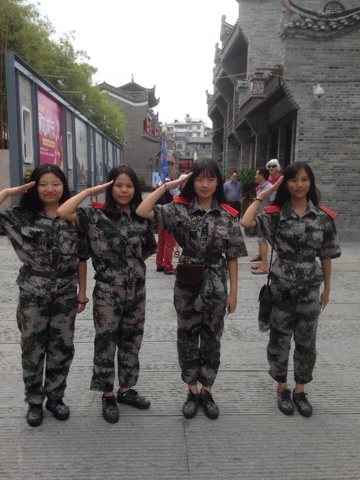The western misunderstanding of Communist China has been called “the liberal myth.” With our mindset and experience, it is almost impossible to grasp that a country can fail to open up politically when it opens up economically. “The more we bring China into the world,” said then President Bill Clinton, “the more the world will bring freedom to China.” We have thought that the new middle class would make itself a force for liberalization. But in the socialist market economy, it has instead aligned itself with the Communist Party. We have thought that the internet would forge opening up from below. But behind the Great Firewall, it has instead become another instrument of control from above. Liberalisation has not happened, but we cling to the belief that it will. When Xi Jinping came to power in 2012, it was thought, with no evidence whatsoever, that the time had come for a new leadership of reform. What has followed is ever tighter dictatorship.
The Chinese model is entirely unique, like nothing the world has ever known. We simply get it wrong if we try to squeeze it into our own models. It needs to be understood on its own terms.
For those who deal with China from outside, there is a huge temptation to see it in a good light. It is a big power and economy with which we must get along. It is an ancient oriental culture which attracts interest and fascination. The west is bedazzled by China’s mysticism and bigness. Henry Kissinger, for example (in On China), pays Beijing tribute with his romantic notion of the “civilization state.” The academic literature on China is generally critical, but even much of that criticism conforms in its way with the liberal myth. We observe the absence of rule of law, but take that to be a pathology in a regime that could do better. We observe the censorship, the propaganda, the “thought-work,” and the thuggish “stability maintenance” and criticize the regime for its excesses.
The abuse of the law and the courts and the brutal clampdown on any form of active opposition are, however, not “mistakes” on the part of a confused regime. These practices are logical and necessary, given the regime as it is.
In the Chinese party-state, there is a single supreme determination that trumps all others: stability, meaning the regime’s perpetuation of itself. The post-Mao rulers have had two strategies of self-preservation: the purchase of legitimacy and the exercise of control. During the last decades of rapid economic growth, they could rely on being rewarded for economic betterment. But mega-growth is now over and people’s expectations are outrunning government delivery. The leaders are therefore shifting to relying more on controls. Behind Xi Jinping’s tightening of dictatorship lies a steely analysis of what is needed to avoid the disintegration that has befallen previous Leninist systems, primarily the Soviet Union.
A dispassionate analysis of today’s Chinese system is unavoidably despondent. Not much, if anything, can be expected of reform for the better from within. Dictatorship is here to stay.
However, the model is still, to some degree, in the balance, if only between harder and softer dictatorship. That difference matters enormously for the Chinese people and for the world.
The current leader is flirting with a new ideology of nationalism and chauvinism under his slogan of the “China Dream.” Ideologies are always dangerous and their force should never be underestimated. If the new ideology were to take hold, Xi could abandon all of the pragmatic legacy after Deng Xiaoping and embrace all-out totalitarianism, now of nationalistic rather than Marxist inspiration.
Our misunderstanding of China leads us to confusion in our dealing with the new superpower, as recently for example in Britain’s failed attempt to make itself China’s best friend in Europe. The truth is that we must continue to do business with a regime that is and will remain repugnant. It is safer to do that with open eyes than by pretending that hard dictatorship is benevolent autocracy. It is more productive to be straight with a Chinese leadership that does not believe flattery.
The outside world has very little sway over developments in China. But we do have one lever that could give us some influence to possibly hold China to at least pragmatic dictatorship. The leaders are not content with power but desperate for respect. It is in our gift to award or withhold respect. That influence cannot change China for the better, but it might do something to prevent it from getting worse.
To use this lever to effect we should stand firm on our own values and principles and claim democracy’s moral high ground. We should then engage with China on all levels, economically and politically as well as in science and culture and in other ways. By engagement, China binds itself to international rules and commitments.
We, our leaders that is, should speak out in clear language against China’s breach of human rights and rule of law. That should always be done with reference to China’s own constitution and laws, which are in these respects sound (if ineffective). And we should speak out in clear language against China’s policies of aggression. That should always be done with reference to international law.
The Chinese leaders want respect because they need respect abroad for legitimacy at home. We should let them know that if they want our respect, they must respect their own people and other nations.


















































